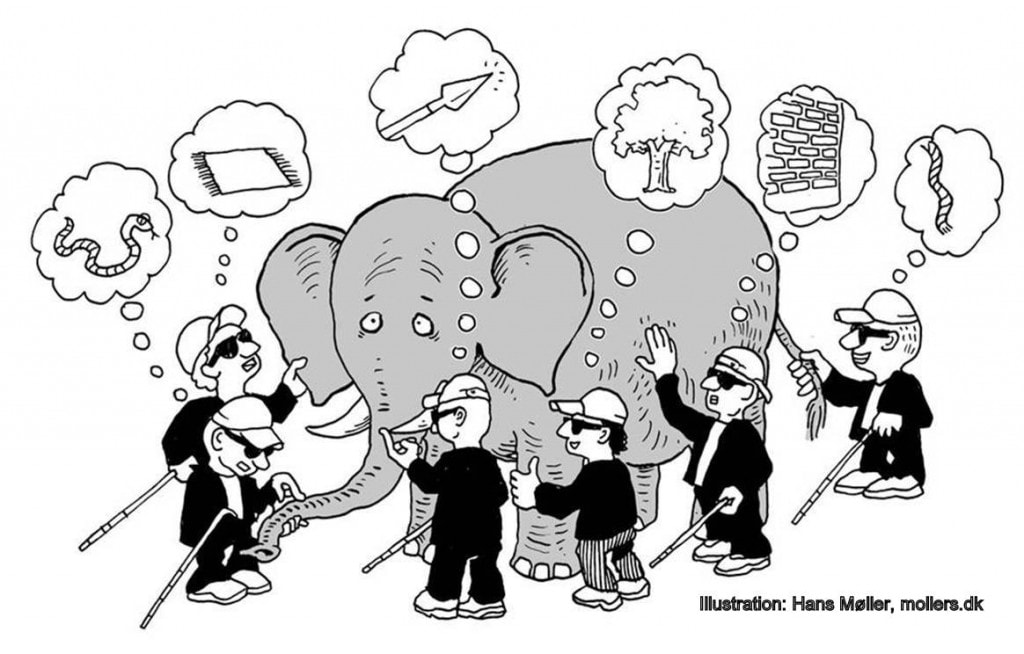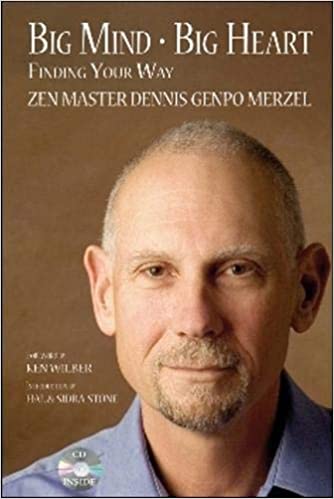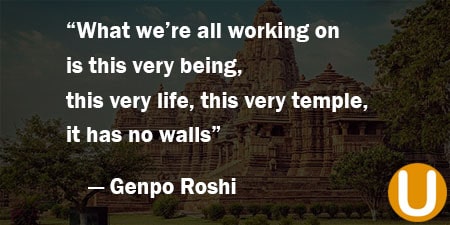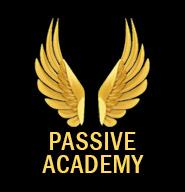Big Mind Big Heart Summary
- Book by Genpo Roshi
The Book in 1 Sentences
Big Mind Big Heart: Finding Your Way
“Can you imagine a world where everybody was free, happy and joyful, where everybody came from a place of generosity and giving freely without any strings attached? Can you just imagine this world? It’s almost impossible to imagine, it would be such a different place.
Well, that’s our work. That’s what we’re here to do. That’s what this book is all about. If enough of us can get to that level of consciousness, I believe the whole planet, would be transformed.”
5 BIG Ideas
1. “In reality, there are an infinite number of perspectives, but we act as if there were only one.”
2. “Being able to shift perspectives is like having a freely functioning vehicle. If a car is stuck in any gear, what you’ve got is a dysfunctional car. “
3. “So I’m about tearing down the monastery walls and seeing the whole world as the monastery, as the practice, as the spiritual temple.”
4. “My happiness is not dependent on conditions or circumstances. I am one with whatever feeling or emotion comes up.”
5. “That’s the beautiful thing, that’s the secret: to want what you get rather than trying to get what you want.”
Big Mind Big Heart Summary
Zen Master Dennis Genpo Merzel. Also known as Genpo Roshi says: “There is a transcendent awareness, a Big Mind, a Big Heart, present and readily accessible to each and every one of us.
When we realize it, we see it is the source of true peace, happiness, satisfaction, courage and joy. And yet, we don’t know how to access it, we don’t know how to bring it into our awareness. We don’t know how to manifest it or embody it.
For the past thirty-six years, I have been searching for a way to assist people to access this awareness. In June 1999, after much study and difficulty, I finally found a simple, effective way which I have been exploring and refining since then. I call it the Big Mind/Big Heart process, or simply, Big Mind.”
In this book Genpo Roshi discusses the Big Mind process which is a process that integrates Zen Buddhism with Voice Dialogue. That will show you a new way to manifest the world and the self…
Genpo says: “Do we need the self? Yes, absolutely. Do we need to be identified with it 24 hours a day, 7 days a week? Absolutely not. Because when we’re identified with the self, as the self, we live in fear, we live in anxiety, we live in stress, we live in suffering.
When we’re able to identify with that which has no boundaries, with Big Mind—it’s a name, you could call it many things, universal consciousness or whatever—when we’re no longer identified with the self, fear doesn’t come up. When we identify with that which is ungraspable, that which is unnameable, then there is absolutely no fear. We live in fearlessness.”
Interesting, isn’t it?! Let’s dive deeper in some big ideas…
1. The Fullness of Understanding
“So we end up with what the Buddha taught in his first teaching, which is called the Eightfold Path, when he said, ‘have Right View.’ Right View is having no particular, fixed view, which means seeing that all views are limited, that no particular view is the only view. They’re all restricted, they’re all limited, they’re all fragmented. Actually the right view is no view.”
That reminds me of a story “The Six Blind Men and the Elephant”…
The Six Blind and the Elephant Story
Once upon a time there were six blind men. They lived in a town in India. They thought they were very clever. One day an elephant came into the town. The blind men did not know what an elephant looked like but they could smell it and they could hear it. 'What is this animal like?' they said. Each man touched a different part of the elephant.

- The first man touched the elephant's body. It felt hard, big and wide. 'An elephant is like a wall' he said.
- The second man touched one of the elephant's tusks. It felt smooth and hard and sharp. 'An elephant is like a spear' he said.
- The third man touched the elephant's trunk. It felt long and thin and wiggly. 'An elephant is like a snake' he said.
- The fourth man touched on of the legs. It felt thick and rough and hard and round. 'An elephant is like a tree' he said.
- The fifth man touched one of the elephant's ears. It felt thin and it moved. 'An elephant is like a fan' he said.
- The sixth man touched the elephant's tail. It felt long and thin and strong. 'An elephant is like a rope' he said.
The men argued. It's like a wall! No, it isn't! It's like a spear! No it isn't! It's like a snake! They did not agree. The king had been watching and listening to the men. 'You are not very clever. You only touched part of the elephant. You did not feel the whole animal. An elephant is not like a wall or a spear or a snake, or a tree or a fan or a rope'.
The men left the town still arguing. A little girl heard them and said 'Each of you is right but you are all wrong … but I know what you are talking about!'
Actually, all six drew conclusions that explained correctly the evidence of their senses. All six were equally wrong because their judgments were based on incomplete evidence, on partial truth.
The Partial Truth
So long as one sees from only one angle, one has only a partial truth. Without a general understanding, this partial truth is bound to be misleading, bound to create misconceptions. When one observes a phenomenon in different ways from different viewpoints, the full truth is revealed.
This is real wisdom: to see things from different angles. As one proceeds from a narrow, partial view to an understanding of truth in all aspects, automatically illusions and confusions disappear.
Genpo says: “That is why from the beginning it’s really important that you learn to shift perspectives. That alone is going to help tremendously in your life. Just imagine the next time you get into an argument with your partner or spouse, and you are able to let go of your view and open up to the possibility that there might just be another perspective on the situation—her view, or his view. The moment you do that, it sets you free.”
Keep in mind: “In reality, there are an infinite number of perspectives, but we act as if there were only one.” - Genpo Roshi
So, nothing is absolutely right, and nothing is absolutely wrong…
You can try this out the next time you find yourself in an argument with someone, I guarantee that would make a huge difference!
By understanding truth in its entirety, the mind becomes fully awakened to reality. Thus, one develops right awareness. And by maintaining awareness of the reality within from moment to moment, one achieves right concentration of mind.
2. Maserati Stuck in First Gear!
“Being able to shift perspectives is like having a freely functioning vehicle. If a car is stuck in any gear, what you’ve got is a dysfunctional car.
Even if it’s a Maserati, if you’re stuck in first gear, or you’re stuck in reverse, no matter what gear you’re stuck in, it’s dysfunctional.
But the moment you have fluidity and movement and you’re able to shift up or down or into reverse, or whatever you need to do, you’ve got a functional vehicle.”
That’s brilliant! Can you imagine a Maserati stuck in first gear! It’s useless!
Sometimes in our lives we are stuck! Stuck in reverse, stuck in our past, looking back, regret, torture ourselves with our memories!
And sometimes stuck in 1st, afraid of taking the first action… Afraid to take a risk, to start a job, to make a career shift, to have a date…. And the list goes on!
And sometimes stuck in 5th, can’t slow down! Burning our brains with endless goals, and can’t achieve any of them!
Now imagine your life. Where are you right now?! Are you stuck?!
It really doesn’t matter what gear you’re stuck in, the only thing you need to do is to fix that to be able to shift your gear as life demands.
So, the first thing to learn about the Big Mind process is: not getting “stuck.”, Ok? 😊
Dukkha & Sukkha!
“What we do naturally is we cling, we grasp, we hold on to. We are not functioning freely, not free, because we’re stuck.
Buddha observed this tendency and gave it a name. He said when the mind is stuck, you’re in dukkha (usually translated from the Sanskrit as suffering).
Dukkha literally means a wheel whose hub doesn’t move. So what kind of a wheel do you have? A useless, dysfunctional wheel. What good is a wheel if it doesn’t move?
What Buddha discovered and taught was to free up the wheel. He called it sukkha, a liberated wheel, a freed-up wheel. That means liberation, nirvana.”
Being stuck = Suffering (Dukkha)… Free yourself up from suffering all the time, free yourself from being STUCK… Life is more than you think if you can control and liberate your mind…
Always remembers these two words: Dukkha & Sukkha… Where are you right now?

GET Blinkist 7 Days FREE Trial
3000+ Book Summaries
(Audio and Text)
3. The Temple that Has No Walls
“We’re at the point in our evolution that we all have to become conscious. This is a time of revolution. There’s no holding back.
So I’m about tearing down the monastery walls and seeing the whole world as the monastery, as the practice, as the spiritual temple. What we’re all working on is this very being, this very life. This is the temple, it has no walls.”
A HUGE concept… We are used to see people telling us to meditate every day for 20 minutes or 1 hour for example… But in this case, we are being told to live our lives meditating as if we are in a temple without walls…
To be present to the moment, to be more mindful, to be aware and to practice gratitude in each moment can be miraculous!
That reminds me of a concept from “A guide to the good life” great book: We are Living in a Dream World.
William B. Irvine says: “Alternatively, we can do some historical research to see how our ancestors lived. We will quickly discover that we are living in what to them would have been a dream world—that we tend to take for granted things that our ancestors had to live without, including antibiotics, air conditioning, toilet paper (!), cell phones, television, windows, eyeglasses, and fresh fruit in January.
Upon coming to this realization, we can breathe a sigh of relief that we aren’t our ancestors, the way our descendants will presumably someday breathe a sigh of relief that they aren’t us!”
How we live right now is a dream for our ancestors. We are living in a magical world, we got all we need, just think about that. as Louis CK tells us “Everything’s amazing and nobody’s happy.” Watch his video, wisdom and fun..
Thinking about how amazing my life is to live in this era, I can write this article and share it with thousands of people, and it can change lives! That’s AMAZING!
Think about that.. You have a cell phone, a computer, a car! Thanks to everyone invented these things that made our lives much easier…
Remember that: “I’m about tearing down the monastery walls and seeing the whole world as the monastery, as the practice, as the spiritual temple.”
And think about how can you practice this Big Idea in your life today and every day?
4. Your Inner Company!
“Each of us has innumerable voices, or aspects, within us. To get a clearer picture of how they operate, think of yourself for a moment as a large corporation with many, many employees. How many? Nobody knows. It’s a little bizarre.
We went out and randomly hired all these folks for our company, and we neglected to tell them what their jobs were. We also neglected to tell them their titles or job descriptions.
If that weren’t bad enough, we didn’t even tell them who they work for, what the name of the company is, and who the boss is. Then we said, go to work. Now what kind of company is that?”
Can you imagine that!
Genpo also says: “A company where nobody knows their job title, job description, what they’re supposed to be doing, is going to be a company in suffering, in shambles.”
The same as these voices in your head that you have no control on! Isn’t it?!
Now the key is the Big Mind process.
What is the Big Mind process?
Genpo continues: “Now what we’re going to do is interview each employee of the company, not all of them, but one at a time, we’ll do a limited number of key employees.
We’ll interview each of them, we’ll get their perspective on what they do, and we’ll clarify their job title and their job description.
We’ll tell them this is what we want them to do for the company because this is what they were hired to do. Eventually we’ll introduce them to the CEO of the company.”
Alright, let’s get down to business. That’s the Big Mind process.
We have a number of “key employees” in our heads! And we’re meant to have a dialogue with each one of them individually to know exactly who they are and what they are supposed to do… And in this section of the book Genpo shows us these dialogues… And I’m going to share with you some of my favorite ideas…
Genpo says: “My understanding is that every aspect of the self, every voice, has its own innate wisdom; that if we would simply allow every voice to be heard, to be appreciated, and to be honored, we as human beings would live a much healthier, happier and joyful life; that by denying or suppressing any aspect we are creating a problem both for the self and for others.”
1. Integrated Feminine/Masculine Compassion
“I am always compassionate, but sometimes in a very feminine, gentle way, nurturing and supportive, and sometimes in a very masculine way, ruthless and decisive.
But I always have in my arsenal what is necessary to get the job done. I am totally integrated. There’s no need to become integrated; I am Integrated Feminine/Masculine Compassion. Another name for me is Big Heart.”
Being able to be nurturing and supportive in sometimes, and in other times being ruthless and decisive -according to the situation- is defined by Genpo as the Integrated Feminine and Masculine Compassion, and the Big Heart.
The idea is to be able to hold both aspects of compassion to have a truly integrated perspective. Don’t get stuck in one of them… Got it?
2. Integrated Free-Functioning Human Being
“I include all the aspects of the self, all the dualistic voices and Big Mind, the non-dual, no-self, and I transcend them.
I am also known as the Master, or the Unique Self. I am absolutely unique, there is no one else in the entire world exactly like me. I have no need to prove anything or to be special since I am special and unique to begin with.
I am also known as the natural self or ordinary mind. I do not need to put on airs or a façade. I am natural and unassuming. I am unconditionally joyful.
My happiness is not dependent on conditions or circumstances. I am one with whatever feeling or emotion comes up. I am the mind of Great Joy and the mind of Great Appreciation and Gratitude.”
That’s the Voice of The Integrated Free-Functioning Human Being.
3. Great Gratitude and Appreciation
“That’s the beautiful thing, that’s the secret: to want what you get rather than trying to get what you want, because that seems like a never-ending battle, and a losing battle at that. We seem to always get what we need, though. So when we want what we get, it’s really like wanting what we need.”
That’s the Voice of Great Gratitude and Appreciation.
That reminds me of a great idea from “A guide to the good life” great book: “The easiest way for us to gain happiness is to learn how to want the things we already have.”
4. The True Self
“I am the True Self. In other words, I am the one that truly transcends. The Non-Dual is still not truly transcendent because somehow it sees itself as better or greater than the dual, which is still very dualistic.”
That’s the Voice of the True Self.
Genpo also says in the Voice of the True Self: “I embrace desires and seeking and fear and distinctions. I embrace them all but I am not bound by them, I’m not attached to them. I can have a desire, and drop the desire if it’s not fulfilled… I don’t get stuck anywhere.”
5. The Voice of Generosity
“Can you imagine a world where everybody was free, happy and joyful, where everybody came from a place of generosity and giving freely without any strings attached? Can you just imagine this world? It’s almost impossible to imagine, it would be such a different place.
Well, that’s our work. That’s what we’re here to do. That’s what this book is all about. If enough of us can get to that level of consciousness, I believe the whole planet, would be transformed.”
That’s the Voice of Generosity.
So, can you imagine?! 😊
That was my Big Mind Big Heart summary, a very quick look at this great book. If you haven’t read it yet and you’re interested in it, get a copy. There is a HUGE amount of wisdom and value in this book, and we’ve only touched on a tiny bit of it.
Buy The Book: Big Mind Big Heart by Genpo Roshi

GET Blinkist 7 Days FREE Trial
3000+ Book Summaries
(Audio and Text)






